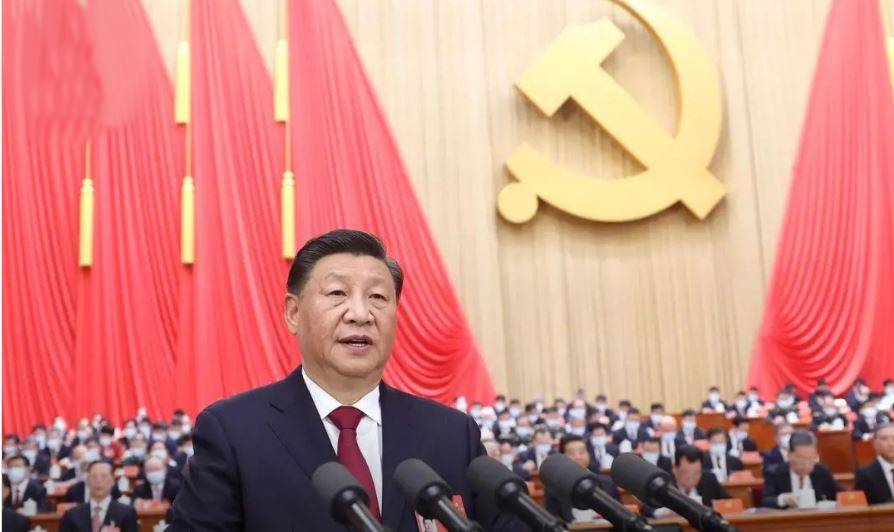BEIJING – The 20th CPC Central Committee adopted resolution at its third plenary session to deepen reforms and advance Chinese modernization.
Political Bureau of the CPC Central Committee, led by General Secretary Xi Jinping, presided over the meeting. Xi delivered key addresses.
The resolution called for socialist system, modernizing governance by 2035, building a high-standard market economy, promoting innovation, enhancing macroeconomic governance, integrating urban and rural development, expanding institutional opening up, developing democracy and the rule of law, boosting cultural confidence, ensuring ecological conservation, and strengthening national security and defense, with reforms to be completed by 2029.
The session confirmed resignation of Qin Gang and the expulsion of Li Shangfu, Li Yuchao, and Sun Jinming.
At the session, the Central Committee reviewed and discussed a report on the Political Bureau’s work, presented by Xi, and adopted the resolution on deepening comprehensive reform to advance Chinese modernization. Xi provided explanatory remarks on the draft resolution.
The communique outlined the overall goals of the reform, aiming to improve and develop socialism with Chinese characteristics and modernize China’s governance system and capacity. Its objectives include building a high-standard socialist market economy by 2035, further improving the socialist system, modernizing governance, and achieving socialist modernization, laying a foundation for China to become a great modern socialist country by mid-century. The reform tasks are to be completed by 2029, coinciding with the 80th anniversary of the People’s Republic of China.
Central Committee made systematic plans for further deepening reform with emphasis on leveraging the market’s role, creating a fairer and more dynamic market environment, and improving resource allocation efficiency. It also stressed the importance of supply-side structural reform, high-quality development, and fostering new growth drivers.
The Party aims to support all-around innovation through comprehensive reforms in education, scientific and technological structures, and talent development. The communique called for coordinated reforms in fiscal, tax, and financial sectors to enhance macroeconomic governance and improve the national strategic planning system.
On urban and rural development, the Party will promote equal exchanges of production factors, narrow disparities, and deepen land system reform. Opening up is described as a defining feature of Chinese modernization, with plans to expand institutional opening up, reform foreign trade structures, and enhance the Belt and Road Initiative.
The communique emphasized developing whole-process people’s democracy, upholding and improving political systems, and ensuring rule of law. It called for boosting cultural confidence, advancing socialist culture, and preserving traditional Chinese culture.
To enhance people’s wellbeing, the Party will improve income distribution, the employment-first policy, social security, and healthcare systems, and support population development and related services. On ecological conservation, the communique highlighted the need for coordinated approaches to carbon cutting, pollution reduction, green development, and climate change response.
National security was also emphasized, with plans to improve institutions and mechanisms for safeguarding security and ensuring stability. On national defense, the communique urged maintaining the Party’s absolute leadership over the armed forces and implementing military reform strategies.
The communique stressed the importance of Xi Jinping’s leadership and Xi Jinping Thought on Socialism with Chinese Characteristics for a New Era. It highlighted Chinese modernization as peaceful development and reiterated China’s commitment to an independent foreign policy of peace and promoting a human community with a shared future.
The session called for firm commitment to this year’s economic and social development goals, with measures to prevent and defuse risks in real estate, local government debt, and financial institutions. The session also accepted Qin Gang’s resignation from the Central Committee and confirmed the expulsion of Li Shangfu, Li Yuchao, and Sun Jinming from the Party.
As per communique, a total of 199 members and 165 alternate members of the Central Committee attended the session.










